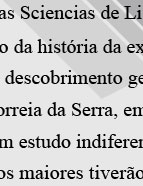

................................
The rules of historiographical production derived from this were based on two products: the comprehensive national or universal synthesis and the school textbook.The former focused on national entities—the states and their heroes—and aimed to trace the genealogy of the glorious ancestors, of whom their contemporaries were no more than legitimate heirs and continuators. History was approaching the Epic. School textbooks on the other hand, although following the same rationale, were devoid of scholarly apparatus, written on the basis of the cult of the homeland and its prominent figures, highlighting the present, so as to be understood by all. There was a clear recognition here between the sense of belonging to a community—the nation—and the sharing of a common, almost immaculate past, where deviations, thus understood in light of the understanding of former times, were subordinated to the achievements, which deserved to be highlighted since these deeds conferred an identity substrate to the collective.
From this perspective, history fulfilled a function. Beyond the historiographical exercise per se, history politically legitimised the contemporary. If it did not, it would have failed in its role. Thus, it bore this utilitarian character. While the state emerged as the locus of historical change and man, individually and voluntarily, was its subject, history appeared as the succession of great events enacted by great figures. Politically, history fulfilled the task of transmitting the cultural and political values of a people through the study of their past. It was as if there were an umbilical and indissoluble connection between generations, between notable ancestors and their contemporary, proud continuators.
The Portuguese historiographical scene also accompanied this series of transformations and constant shifts within the disciplinary field. The main advocate of a positivist approach to political history in Portugal was Teófilo Braga (1843–1924), a well-known face of republicanism with a particularly engaged public life, having held important positions in the directory of the Portuguese Republican Party and after 1910, as the leader of the provisional government.
